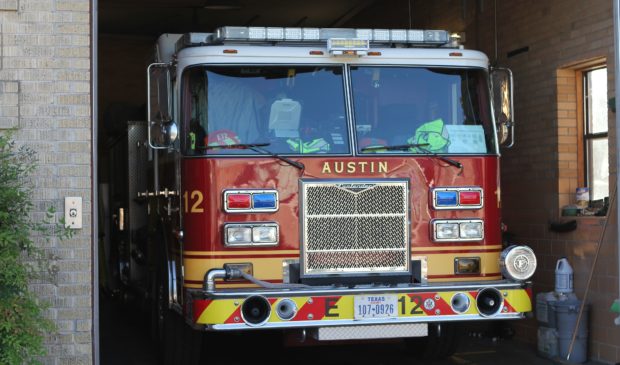Auditors to look at firefighters’ overtime
Friday, June 16, 2017 by
Jo Clifton After considerable complaint from its newest members, Jimmy Flannigan and Alison Alter, City Council voted last month to amend the city’s General Fund budget by transferring $3.5 million from a stabilization reserve fund into the Austin Fire Department’s budget to pay for overtime expenses.
Council on Thursday directed the Office of the City Auditor to look at policies and practices of the fire department to see how those policies drive overtime pay.
Flannigan and Alter sponsored the resolution directing the auditor to amend her yearly audit plan to include a study of fire department overtime. Except for Council Member Leslie Pool, who initially opposed the audit but finally abstained, the vote in favor of the audit was unanimous.
Flannigan and Alter, along with Mayor Steve Adler, have also requested that the auditor’s staff conduct a special project to look at how the city’s collective bargaining agreement with firefighters may be affecting overtime pay. City Auditor Corrie Stokes told Council on Thursday that her staff could complete the special project by the end of July.
Representatives for the firefighters’ union and the city will begin negotiations on June 21. Assistant City Manager Mark Washington told Council he was somewhat concerned that results of the special project would not be available soon enough to make a difference in the negotiations.
Stokes said she expected to complete the limited audit of AFD’s personnel expenditures, including overtime, compared to policies and procedures at fire departments in other cities sometime in August.
Austin Firefighters Association President Bob Nicks said there is no question that the consent decree the city signed with the U.S. Justice Department in 2014 is the major driver for Austin’s insufficient number of firefighters.
That agreement prevented the city from hiring firefighters until it could design new procedures, and the city has never recovered from that. Not having enough firefighters, of course, means firefighters have to work overtime, leading to high overtime expenses.
Nicks said fire is the only department in the city that selects overtime workers based on who has the lowest hourly rate. “So we’re doing it the cheapest way you can do it,” he said. The problem is that once all those lower-paid workers are scheduled, the department must use higher-paid workers, some of whom are paid as much as $50 an hour, he said.
Currently, firefighters volunteer for overtime and the department might be able to save money by requiring overtime from some of their lower-paid employees. However, that might lead to extreme fatigue and some employees care for elderly parents and disabled children.
Nicks is concerned that there may be a move to eliminate four-person staffing, which the association considers vital for safety reasons.
But Nicks said the association would support temporarily moving “non-operational” firefighters from their current positions into operational jobs on a floating basis in order to cut the need for overtime. For example, Nicks said members of the Wildfire Division could be moved temporarily into firefighting positions.
“My figures show if you move about 17 people, you would save $2 million a year,” Nicks said. The reason for such a high savings rate, he said, is because that move would displace the highest-paid firefighters, approximately six people per shift.
“The issue is not caused by the firefighters or the chief. … I think it is appropriate that we tighten our belts,” Nicks said.
Nicks said some members of the department’s community outreach program could also be temporarily reassigned to operational work. However, he said he would not recommend moving firefighters out of either training or fire prevention.
The union leader said he has been discussing these ideas with various members of Council and he believes that fire department management would be amenable to such a temporary arrangement in order to save money.
“I am committed to working with the chief,” he said, noting that the changes he is proposing would be temporary until the department can increase its ranks by 100 firefighters, at which point they would only be short 40 to 50 employees.
Photo by J.Köster (Own work) [CC BY 3.0 or CC BY 3.0], via Wikimedia Commons.
The Austin Monitor’s work is made possible by donations from the community. Though our reporting covers donors from time to time, we are careful to keep business and editorial efforts separate while maintaining transparency. A complete list of donors is available here, and our code of ethics is explained here.
You're a community leader
And we’re honored you look to us for serious, in-depth news. You know a strong community needs local and dedicated watchdog reporting. We’re here for you and that won’t change. Now will you take the powerful next step and support our nonprofit news organization?






